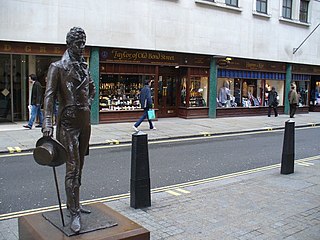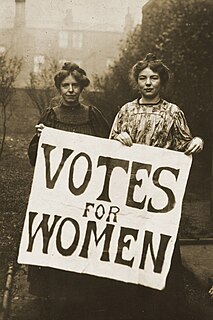
Masculinity is a set of attributes, behaviors, and roles associated with boys and men. As a social construct, it is distinct from the definition of the male biological sex. Standards of manliness or masculinity vary across different cultures and historical periods. Both males and females can exhibit masculine traits and behavior.
In ethology and social science, male bonding is the formation of close personal relationships, and patterns of friendship or cooperation between males.

Giovanni's Room is a 1956 novel by James Baldwin. The book focuses on the events in the life of an American man living in Paris and his feelings and frustrations with his relationships with other men in his life, particularly an Italian bartender named Giovanni whom he meets at a Parisian gay bar. The novel explores the internal struggle of facing one's sexuality despite imposed hyper-masculinity, alongside navigating the public sphere and illustrating the challenges and blessing of accessible queer spaces.
Male privilege is a concept within sociology for examining social, economic, and political advantages or rights that are available to men solely on the basis of their sex. A man's access to these benefits may vary depending on how closely they match their society's ideal masculine norm.
Pro-feminism refers to support of the cause of feminism without implying that the supporter is a member of the feminist movement. The term is most often used in reference to men who actively support feminism and its efforts to bring about the political, economic, cultural, personal, and social equality of women with men. A number of pro-feminist men are involved in political activism, most often in the areas of gender equality, women's rights, and ending violence against women.
Men's studies, often called men and masculinities in academic settings, is an interdisciplinary academic field devoted to topics concerning men, masculinity, feminism, gender, and politics.
Masculine psychology refers to an archetypal gender-related psychology supposedly of male human identity. It is examined through the lenses of history, which have produced standard culture, especially as it relates to gender studies. Gender differences are determined from a scientific and empirical approach, while the other approaches are theorized as they are aligned to the psychoanalytic tradition. Psychoanalytic approaches have cultivated concepts like masculinity and machismo because of biased analytic inclusions.
The mythopoetic men's movement was a body of self-help activities and therapeutic workshops and retreats for men undertaken by various organizations and authors in the United States from the early 1980s through the 1990s. The term mythopoetic was coined by professor Shepherd Bliss in preference to the term "New Age men's movement". Mythopoets adopted a general style of psychological self-help inspired by the work of Robert Bly, Robert A. Johnson, Joseph Campbell, and other Jungian authors. The group activities used in the movement were largely influenced by ideas derived from Jungian psychology, e.g., Jungian archetypes, from which the use of myths and fairy tales taken from various cultures served as ways to interpret challenges facing men in society.
The consciousness and philosophy of men's liberation is critical of what it says is the restraints which society imposes on men. Men's liberation activists are generally sympathetic to feminist standpoints and have been greatly concerned with deconstructing negative aspects of male identity and portions of masculinity which do not serve to promote the stories and lives of all men.
Hypermasculinity is a psychological term for the exaggeration of male stereotypical behavior, such as an emphasis on physical strength, aggression, and sexuality. This term has been used pejoratively by some scholars.
In gender studies, hegemonic masculinity is part of R. W. Connell's gender order theory, which recognizes multiple masculinities that vary across time, culture and the individual. Hegemonic masculinity is defined as a practice that legitimizes men's dominant position in society and justifies the subordination of the common male population and women, and other marginalized ways of being a man. Conceptually, hegemonic masculinity proposes to explain how and why men maintain dominant social roles over women, and other gender identities, which are perceived as "feminine" in a given society.

We Real Cool: Black Men and Masculinity is a 2004 book about masculinity by feminist author bell hooks. It collects ten essays on the way in which white culture marginalizes black males. The title alludes to Gwendolyn Brooks' 1959 poem "We Real Cool". The essays are intended to provide cultural criticism and solutions to the problems she identifies.

A man is a male human. The term man is usually reserved for an adult male, with the term boy being the usual term for a male child or adolescent. However, the term man is also sometimes used to identify a male human, regardless of age, as in phrases such as "men's basketball".
Jackson T. Katz is an American educator, filmmaker, and author. He has created a gender violence prevention and education program entitled Mentors in Violence Prevention, which is used by U.S. military and various sporting organizations.
This is a list of topics related to the issue of masculism, men's liberation, the men's movement, and men's rights:

Metrosexual is a portmanteau of metropolitan and heterosexual, coined in 1994 describing a man who is especially meticulous about his grooming and appearance, typically spending a significant amount of time and money on shopping as part of this.
Gender systems are the social structures that establish the number of genders and their associated gender roles in every society. A gender role is "everything that a person says and does to indicate to others or to the self the degree that one is either ï, į, or androgynous. This includes but is not limited to sexual and erotic arousal and response." Gender identity is one's own personal experience with gender role and the persistence of one's individuality as male, female, or androgynous, especially in self-awareness and behavior. Gender binary is one example of a gender system. A gender binary is the classification of sex and gender into two distinct and disconnected forms of masculine and feminine.
The Sambia people are a tribe of mountain-dwelling, hunting and horticultural people who inhabit the fringes of the Eastern Highlands Province of Papua New Guinea, and are extensively described by the American anthropologist Gilbert Herdt. The Sambia – a pseudonym created by Herdt himself – are known by cultural anthropologists for their acts of "ritualized homosexuality" and semen ingestion practices with pubescent boys. In his studies of the Sambia, Herdt describes the people in light of their sexual culture and how their practices shape the masculinities of adolescent Sambia boys.
The concept of toxic masculinity is used in psychology and gender studies to refer to certain norms of masculine behavior in North America and Europe that are associated with harm to society and to men themselves. Traditional stereotypes of men as socially dominant, along with related traits such as misogyny and homophobia, can be considered "toxic" due in part to their promotion of violence, including sexual assault and domestic violence. Scholars argue that the socialization of boys often normalizes violence, such as in the saying "boys will be boys" with regard to bullying and aggression.







